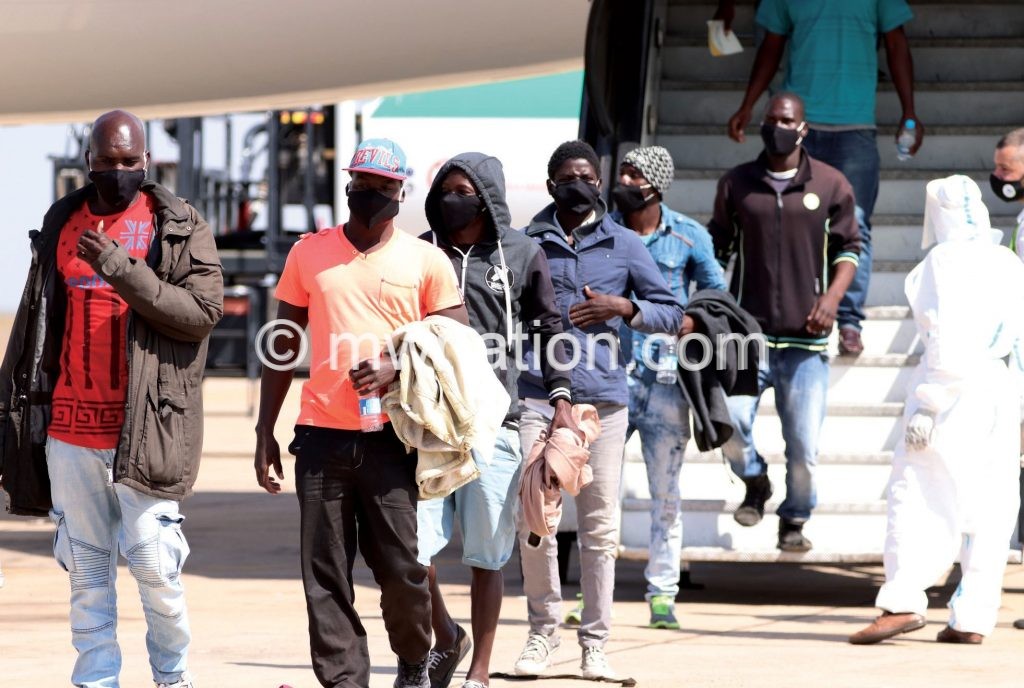K39bn, so near yet so far away
Despite Covid-19 interventions requiring rapid action, potential beneficiaries of the K38.9 billion Emergency Cash Transfer Programme will have to wait a little longer before they start earning the rescue monthly package.
The extended cash transfer facility was scheduled to roll-out at the end of this month, but government has not yet finalised devising implementation modalities and is uncertain of the precise period of launch, Government officials confirmed on Friday.

Minister of Population Planning and Social Welfare Clara Makungwa admitted in an interview the scheme has missed the target due to political elements and delayed formulation of implementing procedures.
“We still believe not all is lost… once everything is in place, we will certainly rollout,” she said.
Government launched the multi-billion intervention to relieve vulnerable people in urban areas of Lilongwe, Blantyre, Zomba and Mzuzu from effects of measures put in place to contain further spread of Covid-19.
Main implementer of the six-month programme is the Ministry of Population Planning and Social Welfare but is assisted by the Ministries of Finance, Economic Planning and Development and Local Government and Rural Development.
Registration of beneficiaries started last month but the exercise was suspended following the alleged involvement of councilors who begun politicizing the initiative.
However, for more than a month now, government is yet to resume identification of beneficiaries expected to be receiving K35 000 per month, an amount based on the prevailing government minimum wage rate.
During his whistle stop campaign trail in Blantyre Rural on Tuesday, Vice-President Saulos Chilima alleged that development partners were withholding funds meant for the programme for fear of abuse by the current administration.
But in interview, Treasury spokesperson Williams Banda also argued the partners had not withdrawn any funds but the delay to release them was due to formulation of the implementation procedures currently underway.
He said: “The K39 billion is intact. Government is finalizing the implementation modalities in order to ensure that there is transparency and accountability in implementing the exercise.”
Makungwa explained the development partners had already indicated their commitments would start from end of June but the initial funds for the programme would come from Treasury.
The ministry has engaged enumerators already handling the social cash transfers across the country who are currently undergoing training on how to execute the new programme.
So far, all the four city councils have been briefed, alongside some block leaders, on what is expected from them in the identification of vulnerable households in the hotspot areas, according to Makungwa.
“We have also formatted a system that will detect and reject people enlisted from outside the targeted areas. So this is not a small job and it has to be done properly, explained Makungwa.
The programme is expected to take six months, translating into three months of response and three months of recovery and is targeting a minimum of 172 000 households, according to the project’s launch concept note.
These represent an estimated 35 percent of the country’s urban population or about one million of needy urban dwellers that rely on petty trading as source of livelihood.
But national coordinator of Catholic Commission for Justice and Peace Boniface Chibwana expressed misgivings over the scheme arguing by focusing on needy urban population government was merely trying to garner political support ahead of the fresh presidential elections.
Chibwana observed targeting 172 000 urban households without proper mapping and assessment of poverty incidence countrywide was a huge policy deficiency for those genuinely in need would not benefit from it.
“It has not considered genuine poverty issues as per the data on the prevalence of poverty in both urban and rural settings. In fact, a realistic and genuinely poverty oriented cash transfer programme triggered by the Covid-19 pandemic would have targeted the rural poor more for that’s where poverty is more prevalent,” said Chibwana.
On his part, executive director of Consumers Association of Malawi (Cama) John Kapito, while applauding government for the initiative, faulted the number of targeted beneficiaries describing it as inconsequential.
“The number should have been extended if we are to compare with the people under threat if Covid-19 measures are to be implemented,” he stated.
President Peter Mutharika introduced the emergency cash transfer facility when he attempted to effect a 21-day lockdown that was later halted after some individuals and civil society organisation (CSOs) sought a court injunction. The lockdown would have resulted in restricting peoples movements especially in urban areas.
Malawi registered the first case of Covid-19 on April 2, and in 58 days, the country has recorded 203 cases with four deaths and 42 recoveries from 3 975 people tested.





